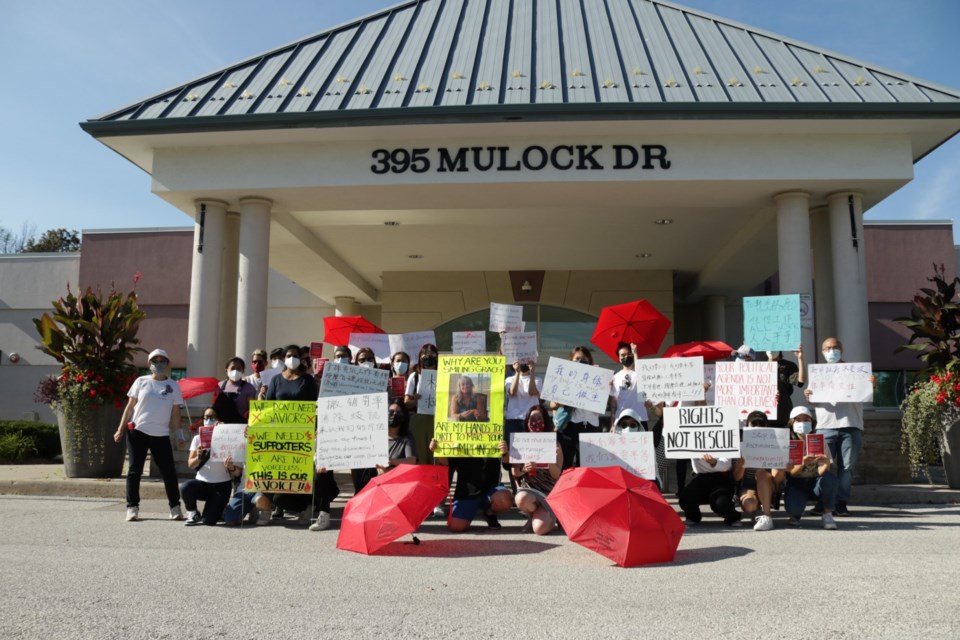The massage parlours that the Town of Newmarket wants to shut down under its new bylaw are fighting back through the municipal appeals process.
The town’s appeals committee heard arguments Nov. 23 from two such businesses denied licences under the personal wellness establishments bylaw. The bylaw passed in 2021 is targeted at stopping alleged sexual services at massage establishments, with enforcement starting this year.
Those are the grounds for the town’s licence denial of the two businesses appealing, Top Health Center and VIP RMT Wellness Center. Their lawyer, Marcus McCann, argued the investigation had become “tainted” by recently disclosed evidence that the town began first began investigating the businesses last March, just a few weeks after licence applications opened Feb. 25.
“The underlying investigation is an issue,” he argued, saying the town had presented a June investigation into the businesses as something “new, fresh — that they hadn’t been stalking and monitoring these women’s businesses in the preceding months — and that turned out to be untrue. And for that reason, we would ask the underlying investigation should be excluded.”
The appeals committee only decided on what evidence would be allowed as the case moves forward, with the next hearing in December. The committee opted to allow some evidence in the June investigation to be used, and McCann’s arguments that the investigation was tainted have not been fully tested in a court of law.
The town created a personal wellness establishment bylaw to further regular alternative massage businesses. The businesses must go through a specialized application, with an educational requirement for workers. But the law has attracted significant opposition from groups arguing it effectively discriminates against Asian-run businesses, and the law is targeting them for suspicion of selling sex.
McCann attempted to get a further delay in the hearing. The businesses are simultaneously challenging the tickets they received from the town and the inability to get a licence, governed by different bylaws. McCann argued there are issues needing resolution in the ticket appeal beforehand, namely a failure to disclose some information. But the committee decided to proceed, excluding that late disclosure and the tickets entirely.
The municipality's lawyer, Howard Levitt, said that the late disclosure and ticketing issue does not taint the rest of the investigation. He said the town is using evidence of advertisements for sexual services at these establishments.
“The idea of taint is just so widely exaggerated as to bear no relation to reality,” Levitt said, adding that failed disclosure “happens all the time. It never taints the entire investigation, it simply means that certain documents can’t be reviewed by the court."
The municipality also denied licences for the businesses that McCann represents based on educational requirements. The bylaw requires massage workers to have post-secondary accreditation or evidence of alternative training. That is something advocates have pushed back against, arguing that many workers in Asian parlours learn on the job. But McCann said that is now resolved through a town-approved York University course arranged in the summer that his clients have taken.
The appeals committee will next hear the case Dec. 7, when evidence is expected to be fully presented.


